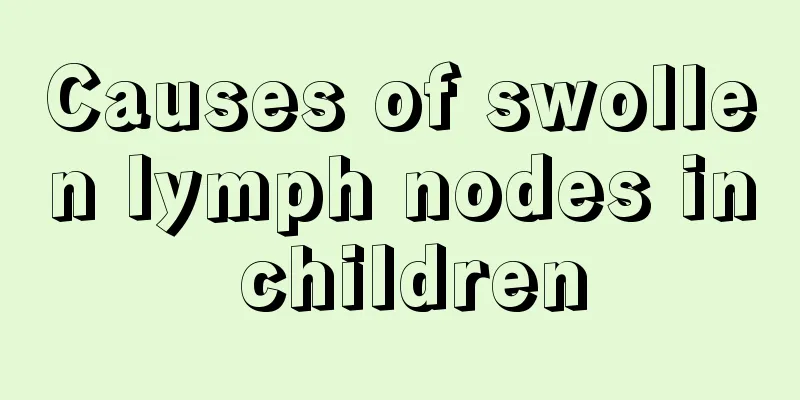Symptoms of colic in infants and young children

|
Gastrointestinal discomfort is easy to occur in the summer, especially for infants and young children. The child's gastrointestinal development is not yet complete, and the resistance is insufficient. If you are not careful, it is easy to cause gastroenteritis in the child, which often leads to symptoms of colic. This is a common type of acute abdominal pain in children. It is easy to occur in infants under three months old. The child will cry loudly, sometimes even have difficulty breathing, etc. Let's take a look at this aspect. Symptoms of colic in infants and young children In fact, infantile colic is a type of acute abdominal pain in children, which mostly occurs in babies under 3 months old. The symptoms will gradually disappear after the baby is 6 months old. On the other hand, infantile colic often occurs at night. So, if your baby is not hungry or sick at night but continues to cry, it is very likely that he has colic. The typical symptoms of infant colic are sudden loud crying and even shortness of breath. When the baby cries, his legs may be pulled towards the abdomen and his hands may move around. The most obvious symptom is abdominal bloating. Although colic is a common problem in babies during their growth, mothers should also understand the causes and learn how to care for them to alleviate their pain. Causes of colic in babies Although colic is not a disease but a temporary symptom of physical discomfort, mothers are still very worried about it. Baby colic is actually the pain caused by strong contractions of the intestinal smooth muscles or intestinal gas. In addition to being caused by milk allergy or the baby being too excited, the most common cause of this acute abdominal pain is the mother's improper feeding method. The following 3 wrong feeding methods should be corrected immediately: 1: Frequently switch between left and right breasts for feeding When the baby sucks the mother's breast, the composition of the milk will continue to change, and the fat secreted in the milk will continue to increase. If the mother switches the baby to the other side to continue feeding before the baby has finished sucking the milk from one breast, the milk the baby sucks will be lower in fat and higher in sugar. Because the baby's spleen and stomach are relatively delicate and cannot digest so much sugar at once, they are prone to feeling uncomfortable, resulting in a series of colic symptoms such as crying, hiccups, and farting. 2: Sudden cessation of breastfeeding due to external interference Some mothers often shorten the feeding time when feeding their babies due to external interference. However, the normal time a baby spends sucking milk is generally 20-30 minutes. If the mother suddenly stops breastfeeding, the baby will not get enough milk, the possibility of gastrointestinal discomfort will increase, and the chance of sudden colic will also greatly increase. 3: Forcing your baby to drink too much milk at one time When the mother is feeding the baby, if the baby is not feeling well, he will refuse to suck milk. If the mother continues to breastfeed the baby, or lets the baby take in too much milk in a short period of time, it can easily cause the baby to choke or even cause digestive system disorders, resulting in colic symptoms. |
<<: Symptoms of parasite infection in babies
>>: Kawasaki disease symptoms in children
Recommend
Why do children cough when they have a fever?
Compared with adults, children have relatively po...
What are the treatment principles for neonatal seborrheic eczema?
The skin of newborns is relatively delicate, so i...
What can children eat to nourish their brains?
Nowadays, parents attach great importance to thei...
Are obese children dangerous?
In life, the elders may have suffered the hardshi...
How many shots of rotavirus vaccine are needed?
Rotavirus often infects children under three year...
Three-year-old boy with precocious puberty
If a three-year-old boy is found to be suffering ...
Symptoms of calcium deficiency in newborn babies
Every parent hopes that their baby will be happy ...
Causes of fever in children in summer
Many people may say that the temperature is relat...
What causes projectile vomiting in babies?
Parents are more worried about infants' proje...
Children have a fever 385
We all know that children are particularly prone ...
What is scarlet fever? You should know these symptoms
Scarlet fever is a contagious respiratory disease...
What to do if your child's glasses are red and swollen
Children often do not pay attention to hygiene wh...
How to feed a newborn baby born by caesarean section?
Newborns born by caesarean section are very fragi...
Is it okay if the child falls on the back of his head?
As we all know, our brain is the most sophisticat...
What medicine should be used for baby's eyelid eczema
For us adults, as long as some diseases can be cu...









